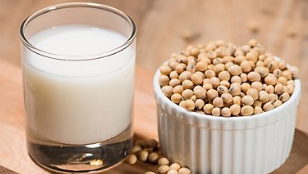Inside BENEO’s new pulse plant: pioneering sustainable protein from faba beans
New processing method to boost the nutrition content and remove waste
Swedish–Swiss multinational food packaging and processing company Tetra Pak has developed a unique processing method for soya drinks, which utilises the entire soyabean in production. Meeting increased consumer demand for healthy, immunity-boosting products, the resulting product is composed of 1.2% fibre, compared to 0.26%, for traditional, extracted soyabean drinks.
Plant-based beverages are a rapidly growing category in the USA and Europe and have been identified as a popular choice for consumers seeking a healthy option or broader variety. However, further innovation is required in the industry to meet these evolving consumer trends. Tetra Pak’s new technology reduces waste and increases the fibre and protein content of the beverage by incorporating the fibre component of the soybean, okara, into the final beverage. The company experimented with different grinding solutions, reducing okara particles so they can be integrated into the final product without impacting taste or texture and produce a versatile, high-fibre beverage. This solution has a shelf-life stability of six to twelve months without stabilizers or emulsifiers, making it a clean label product.
The whole soya line was co-created with customers at Tetra Pak’s product development centre in Shanghai, producing a high-fibre product with no added sugar, creamy taste and texture, and a desirable smooth mouthfeel. Since then, more customers in Asia have added whole soya beverages as premium products complementing existing traditional soya beverages in their portfolio.
This innovation paves the way for a multitude of new products using the same method, presenting a commercial opportunity for yoghurt, spreads, ice cream and meal replacements. The launch forms part of the company’s drive to build an innovation ecosystem that helps open new opportunities in the areas of food safety and availability with the aim of developing more sustainable and resilient food systems.

